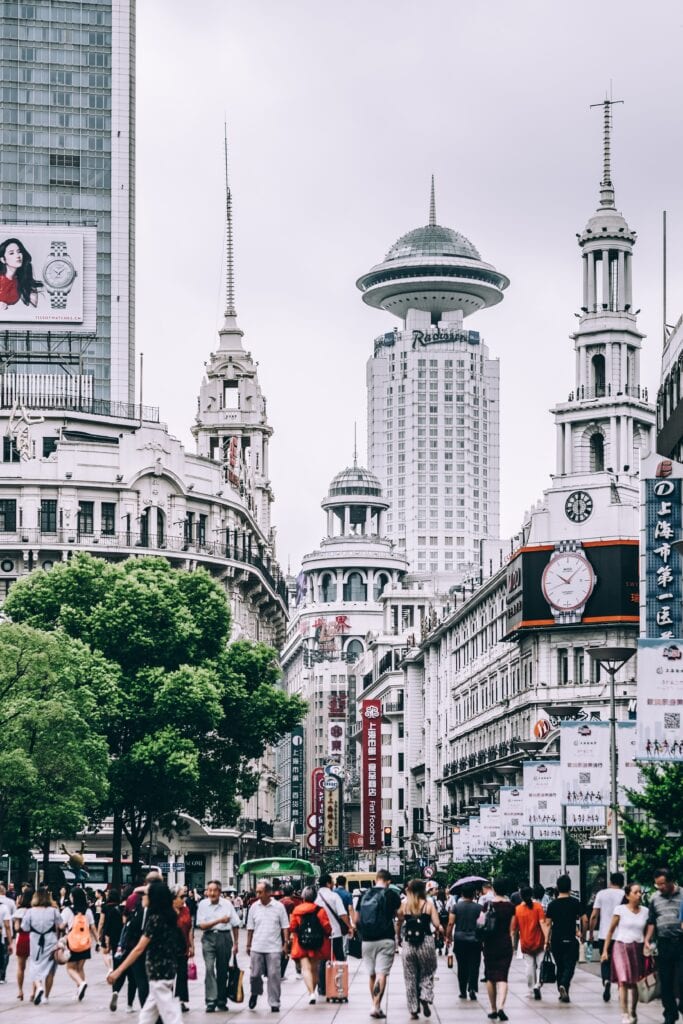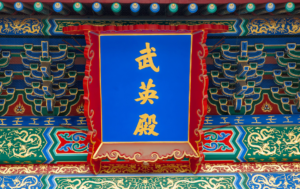A Helpful Guide to find the Best Cities to Study in China
So let’s start painting a little picture of how massive China is it might define the extent of the situation at hand. It’s almost a cliché now that China is the world’s most populous country. Yea, it’s real with over 1.4 billion people and over 500 cities, that’s way too many! These Chinese cities are more populated than in some European countries. Chongqing is the most populous of all, with about 30 million population, shanghai is around 28 million and Beijing 24 million. It is, therefore, tough to decide at the snap of a finger where to study. That’s why we are here.
Let’s take this slowly. We discussed the city factor briefly in the article about how to select a university, and this article is intended to push more information.
Congratulations! You’ve made up your mind to study in China, but you are now thinking of selecting the right city. Well, China is enormous and diverse, and there s no one description to sum it all together. It will take a few factors to decide. At China Scholar, we have mastered the selection process, and we can tell exactly the city that will match your skill sets, but wait! You need to know.
Each city is unique in its own right, but there is something they all have in common, which is speaking Mandarin.
Studying in China can be an adventure. China has the largest population in the world and has numerous major cities. Deciding to study in China, it is useful to know where you want to go. There is a vast difference between Chinese ports. That’s why proper research is fundamental before you make your choice. China is so large that it contains almost all kinds of climates and species of landscapes. This article shows you the options available, so you’re one step further to choose your ideal Chinese city to study.
If there is one country in Asia where you can visit select cities and villages with real immersion, then it is China. It is mainly the traditional villages and 24/7 cities china that travelers visit. You have state-of-the-art multimillion-dollar cities here with neon-lit billboards and giant skyscrapers, up to decades-old lanterns villages, where old traditions are still of paramount importance. Wherever you are, in all towns and cities in China, you will find a unique mix of people and culture.
Popular Cities China
From top cities like Beijing and Shanghai to small villages like Lijiang, there is a traditional Asian culture on full display. All cities in China offer many beautiful, and all have their character. The unique blend of modern and old between the villages and cities in China make the country ideal for a unique city break. You have to have some travel hours for this as the distances are great. Who has the time and energy and is interested in culture and traditions that should not miss the cities in China.
Centuries-old culture in villages is overtaken at the speed of light by modern skyscrapers and a 24/7 economy in the cities. The combination of old and new culture makes China such an endlessly fascinating destination. On this page, you will find all the most beautiful and essential villages and cities in China.
Top 8 Chinese cities for international students
1. Shanghai
Shanghai is a megacity with over 26 million population and is the financial center of entire China. A magnificent city with beautiful horizons and modern architecture. There is too much about this city I can’t write here but if you want to experience Modern China, then Study in Shanghai.
International students recommend this city for the significant presence of expatriates and supportive international student community. The presence of many Multinational organizations implies many opportunities for corporate experience
Recommended Chinese Universities in Shanghai:
2. Beijing
The political City of China commanding the most significant presence of fortune 500 companies than any city in the world. Studying in Beijing, you will quickly notice the presence of Modern China and Cultural China harmoniously co-habiting. The beauty of this scenario attracts several international talents to study in Beijing. Places like the Great Wall, Summer Palace, Temple of Heaven, the hutongs, etc. are iconic!
Beijing has some of the best Universities in China with quality teaching and learning environment. It has a healthy environment to groom and develop talents for the future and many career options to explore. There are a vibrant international student community and supportive ecosystem.
Recommended Universities for studying in Beijing:
3. Shenzhen
Shenzhen has risen to become an emblem of China’s economic power. Over just a decade, the city became what is currently known as “Chinese Silicone Valley.” A term indicating that Shenzhen is now a technology center of Mainland China. Shenzhen is home to Huawei, one of the world’s largest communication companies producing chips and mobile phones. Shenzhen is closest to Hong Kong and links the major bay area of China
International students interested in technology, programming, global trade will do well studying in Shenzhen. There is also a significant presence of international students looking to position themselves for the future
Recommended Universities for studying in Shenzhen:
- Shenzhen University
- The Chinese University of Hong Kong
- Southern University of Science and technology
4. Hangzhou
Hangzhou is a beautiful icon recently touted as an E-commerce city due to the presence of Alibaba headquarters. It has become very relevant to the pace of economic growth in China due to its relevance in connecting other southern cities.
We will recommend this city for international students who want to experience the beauty of China as well as travel around China. Hangzhou has an impressive Chinese Culture you cannot ignore
Recommended Universities for studying in Hangzhou:
5. Xi’an
You remember the terracotta warriors in China, right? It’s what Xi’an is known for, but there is more to it. Xi’an is the capital for Shaanxi province and forms part of the silk road. Thousands of international tourists travel to Xi’an every year to see the authentic historical scenes.
Many International students will pair Xi’an up north with some of the top cities. There is an equally vibrant international student community in Xi’an.
Recommended Universities for studying in Hangzhou:
- Xi’an Jiaotong University
- Northwest University
- Xi’an University of technology
6. Chengdu
Chengdu is home for the Chinese Pandas and also the capital of the Sichuan province. Chengdu is also known for its hot spicy food but also a very influential city in China.
It made it into the list because many international students prefer to learn Chinese Language and even bachelor’s and Master’s degrees here.
Recommended Universities for studying in Hangzhou:
- Sichuan University,
- University of Electronic Science and Technology of China,
- The Southwestern University of Finance and Economics
7. Guangzhou
The host of canton fair and the largest trading hub of China and Asia. Guangzhou is one of the essential Chinese cities and home to several international companies. Guangzhou appeals to international students considering a career in international business.
Recommended Universities for studying in Hangzhou:
8. Hong Kong
One China double policies cover Honk Kong. It is a former British colony doubling as one of the critical financial cities of the world. Due to its strategic location, Hong Kong has become a connecting channel in the Bay area linking China to other parts of Asia and the world.
Diversity and growth make the island very attractive to international students. Study in Hong Kong for real career opportunities
Recommended Universities for studying in Hong Kong:
- The University of Hong Kong
- The Chinese University of Hong Kong
- City University of Hong Kong
Types of Chinese Cities
Metropolitan Cities
Beijing – Shanghai -Guangzhou – Tianjin
Coastal Cities
-Xiamen – Dalian – Ningbo -Qinhuangdao -Yantai – Qingdao -Zibo – Nantong
Cultural Cities
-Hangzhou -Chengdu -Changsha -Zhengzhou-Nanning -Harbin -Guiyang -Guilin -Shanto -Leshan -Nanchong -Baoding -Urumqi -Yinchuan -Chongqing -Luzhou -Fuzhou -Tai’an -Binzhou -Hefei -Jinhua -Yichang -Tangshan -Wuxi -Linfen -Wenzhou
Historical & Cultural Cities
-Nanjing -Zhenjiang – Jinan-Suzhou -Shaoxing -Shijiazhuang -Nanchang -Jinzhou -Taiyuan -Kaifeng -Yangzhou
Peaceful Towns
-Kunming -Shenzhen -Shenyang -Weifang -Wuhan -Shihezi -Yangling -Xi’an -Yuxi -Dali -Ya’an -Xuzhou -Mudanjiang -Jiamusi -Jilin -Huangshi -Fuxin
Chinese Universities Regulation
Recent government and investment reforms have moved three Chinese schools to the top 200 as the Academic Ranking of World Universities (ARWU) – Peking University, Shanghai Jiao Tong University, and Zhejiang University. China is using the ARWU as a benchmark for evaluating the quality of Chinese higher education institutions.
Master’s programs are available in a wide range of disciplines, such as medicine, management, economics, engineering, philosophy, law, education, history, natural sciences, and even military science. For those interested in studying mainly Chinese language and cultural studies, some institutions offer special programs for international students, such as the Beijing Language and Culture University.
Beijing, Shanghai, Hangzhou, and many other cities in China contain some of the best universities in the world. Beijing scores the most amount of points in terms of university ranking. Therefore, any major city in China offers good universities. Making a choice is difficult because there is a lot of options.
Things You Want to Know Before you Study in China
1. What does a Chinese campus and dormitory look like?
A campus in China is big, vast. Imagine yourself as a mini-city, including shops and restaurants. Sometimes the campuses are near the city, sometimes a whole lot outside it. A Chinese campus is walled off, and you can only get in it through a gate. When you study in China, you could sleep in a dormitory on campus. That means you share a room with other students. Sometimes you are offered your room at the start of your Master’s degree, but bachelor students almost always share a dormitory with other students.
In China, they have separate dorms for international students and Chinese students. In the past, the dorms for international students were often more luxurious, but nowadays, the standards are increasingly the same. Every dormitory in China has a janitor. There is a curfew: you have to be indoors for a certain period, and in some dormitories the light also automatically goes out at a standard time.
Are you in China a little longer and want to move? Just off-campus, the culture is often also lively, and usually, living space is available there. However, it is often a bit more expensive, and it is a significant administrative job to get it done. For every change in residence status, you have to go to the police station to register it.
2. What can you expect from Chinese lessons and Teaching Methodology?
In China, compared to education at universities in western countries, you have many contact hours. You make long days, and in the middle of the day, you have two to three hours of lunch break. You, as a student, are expected to listen. Group assignments and discussions held among students, but this happens much less than in western countries. In China, the emphasis is on knowledge transfer and less on educating students to critical, academic thinkers. The tests you get there are focused on reproduction.
3. How is the interaction between students and lecturers in Chinese higher education?
In China, teachers have absolute authority, and students are not supposed to show enough respect. This will change: there are more and more young, fresh teachers in Chinese education with whom dealing is less rigid. Teachers and their families often live on campus in China. As a student, you often come across teachers outside the classroom. In China, it is much more common to play tennis or eat with your teacher. Although the proverbial distance between student and teacher is more significant because of the more definite hierarchy in China, work and private life are therefore much less separate than in most western countries. In China, the teacher will share his or her Wechat with the students in the first class.
You must know that China is ruled by one party: the Chinese Communist Party. In China, it is not common for people to criticize the party. Criticizing can be punished. If you’re going to study in China, I’m sure you want to learn a lot from the country and ask for things. Then it is good to know that what is negotiable depends on quite a bit on the context. If a teacher is in the office, he or she will not speak critically any time soon. The teacher will answer as the Communist Party likes to see it. But if you go to dinner with your teacher one-on-one in the evening, he or she can just tell you something else.
Studying in Shanghai
Shanghai is one of the most exciting cities in the world and China’s largest city. The town is the embodiment of China’s industrialization, of modernization and economic growth. Shanghai has grown from fishing and textile village to one of the largest port cities in the world in the last century and a half. It is a popular destination for tourists, students and businesspeople.
The Bund
In the Pudong business district, which emerged after Deng Xiaoping’s economic reforms in the 1990s, you’ll find some of the world’s tallest skyscrapers. On the other hand (west side) of the Huangpu River, a side branch of the Blue River in central Shanghai, you will find the Bund. This is a one-and-a-half kilometer long promenade along the banks of the Huangpu River. Here are dozens of historic buildings in all kinds of different architectural styles, from Gothic to romance. The historic buildings on the Bund have all been renovated.
The Bund used to be Shanghai’s political, economic, and cultural center. Consulates, banks, companies, and offices of various countries were located here. The contrast with the skyline of Pudong situated on the other side of the river makes the Bund special. It is an example of how old and new can go together well.
Shanghai is also a city where East and West meet. For example, you can shop in some of the most exclusive designer shops in the world, but also traditional Chinese shops in the old city.
Life in Shanghai
Shanghai has about 24 million inhabitants. The city has proliferated over the past decade, in line with economic development. For many Chinese workers, it’s a popular place to seek happiness. Moreover, Shanghai has become a beautiful city for international traders.
Shanghai’s official language is Mandarin, as it is all over China. The language spoken in the Jangtsekiang delta is the Wu language. In Shanghai and its surroundings, the Shanghai dialect is spoken.
Climate
Shanghai has a humid, subtropical climate. Summers are hot and humid, and winters are cold, with temperatures below freezing. The average temperature in July is about 25 degrees, and in January 1 degree Celsius. In winter, there is generally no, to little snowfall, and in June and July, heavy downpours are not unusual. The best periods to visit Shanghai are in spring and autumn; it’s hot but not as hot as it was in the summer months.
Selecting your Favorite City to Study in China
Shanghai is just one of the many great cities in China. To find your ideal city, you should make a list of the most appealing cities in China to you. Then, when you have made your list, you should do more research on each of those cities to have the best result. Information about each Chinese city could fill thousands of articles. Therefore, it is vital to create a strategy on how to select your favorite cities.
To do this, you should first consider which area of China attracts you the most: East/West/North/South of China. Then, you can select which cities you like the most. After some research about the universities of each of the selected cities, it will be easier to make the right decision.













